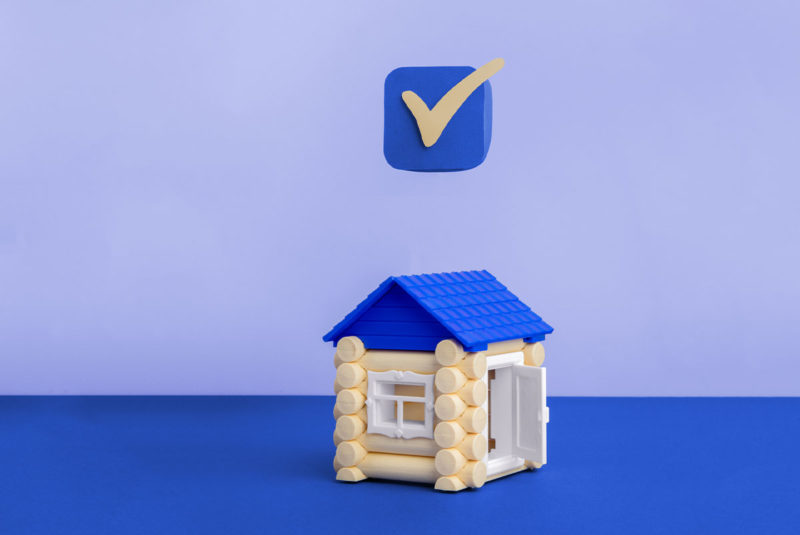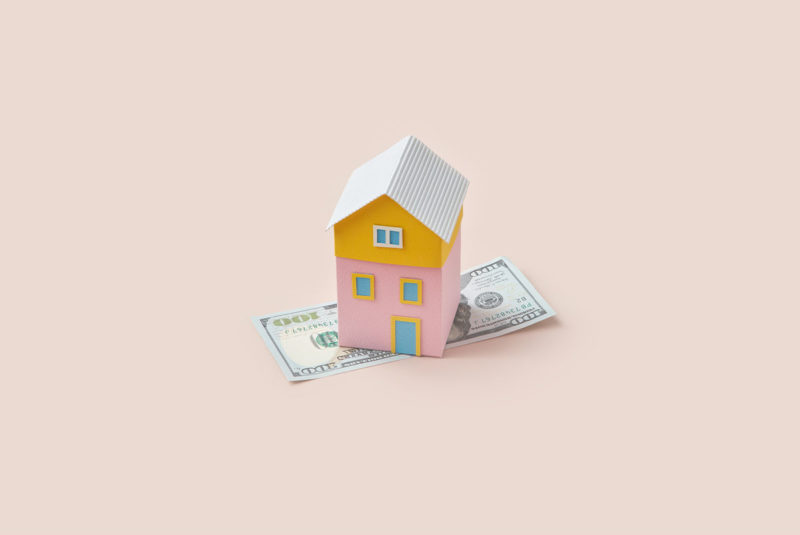Ready To Buy a Home?
Get Approved to Buy a Home
Rocket Mortgage® lets you get to house hunting sooner.
You spent years building up your credit profile and saving a down payment to buy a home. Now that you’ve moved in, you may be thinking about selling to take advantage of a hot market, accept a job in another city or move closer to a friend or family member.
But is that a smart decision?
How long should you live in a house before selling? The exact length of time depends on your personal goals and financial situation, but you should typically wait at least 2 years after purchasing your home.
When it comes to selling your home, patience is a virtue. In this article, we explain how waiting to sell is beneficial, and we offer tips to help you make the right decision.
Why You Should Wait To Sell Your House
Technically, you can sell your home as soon as you buy it. Selling quickly, however, rarely makes sense from a financial perspective. The truth is, there are several good reasons to wait to sell your home.
The longer you own your home, the more time you have to build equity, which can help you improve your financial position before you sell. And waiting to sell your home gives you time to recoup your closing costs.
One of the most important reasons to wait to sell your home is to save money on taxes. If you wait at least 2 years, you may avoid paying capital gains tax on the sale of your home. The less tax you pay, the more money you’ll have for your next adventure!
Wait To Build Home Equity
In lender lingo, home equity is the difference between the market value of your home and the principal balance of your mortgage. Let’s say you have a friend named Morgan. And Morgan lives in a home worth $250,000 and owes $228,200 on their mortgage. Morgan has $21,800 in equity, or about 8.7% equity in their home.
It’s common for homeowners to wonder how much equity they need before they sell their homes. Again, it depends on your current financial situation. If you don’t have a large bank balance saved up, you may want to wait until you’ve built up as much equity as possible.
Waiting to sell your house makes sense in this case because more equity means more money in your pocket once the sale goes through.
We can use a bare-bones example that doesn’t take into account the usual costs to sell a home to see how this works.
Let’s say you sell your home for $300,000 and owe $250,000 on your mortgage. After the sale, you’d end up with around $50,000, before any closing costs that you might have to cover.
You could use that $50,000 to put a down payment on a new home or invest it and build your savings.
Wait To Make Up for Closing Costs
When you buy a home, you pay closing costs, which may include appraisal fees, title insurance, prepaid property taxes and other expenses. In 2021, residential closing costs averaged around $6,905.[1]
Some buyers pay mortgage points at closing. Mortgage points are upfront fees paid in exchange for a lower interest rate on the loan. If you purchased points when you closed on your mortgage, you may want to stay in the home long enough to recoup the cost of those points.
Even if you didn’t pay for points at closing, waiting as long as possible to sell can help you recover your closing costs, putting you in a better financial position when you’re ready to move.
Wait To Avoid Paying Capital Gains Taxes
The IRS classifies homes as capital assets. When you sell a capital asset, you may have to pay capital gains tax on the difference between the sale price and the adjusted basis of the home (we’ll explain what that is next).
Waiting 2 years before selling your home will help you avoid paying higher capital gains taxes. But if you must sell before you hit the 2-year mark, it’s best to wait at least 1 year.
Determining the adjusted basis
Generally, the adjusted basis of a home is its original purchase price plus any capital improvements made to the home. For example, you may have spent money on renovations to increase the value of your home, such as replacing the kitchen or adding a deck.
To calculate the home’s adjusted basis, add the total amount you spent on renovations to the home’s purchase price.
Depending on your circumstances, you may need to subtract certain costs from the original sales price to determine your adjusted basis.
If you inherited your home, the adjusted basis is the fair market value of the property on the date the person who gifted it to you died.
Short-term vs. Long-term capital gains
Short-term capital gains are taxed differently from long-term capital gains, so it’s important to know the difference between them. Typically, a short-term gain is a gain on an asset you’ve held for no more than a year. A long-term gain is a gain on an asset you’ve owned for over a year.
Short-term gains are usually taxed as ordinary income, while long-term gains are subject to capital gains tax. Depending on how much you earn, the tax bill for a short-term gain might be much higher than the amount of tax you’d owe for a long-term gain. In that scenario, paying capital gains tax would be better than paying at your normal tax rate.
Tax rates for capital gains
In 2022, if you earn $40,400 or less per year, your tax rate on a net capital gain is 0%. The limit increases to $80,800 for qualifying surviving spouses and married couples who file their taxes jointly.[2]
If your income exceeds the limit for a 0% capital gains tax, you may have to pay 15% or 20% of your net capital gain.[2] The exact percentage will depend on your annual income and tax filing status.
Section 121 exclusions
Waiting 2 years to sell your home can have an additional benefit. The IRS allows you to exclude up to $250,000 of capital gains tax from your income ($500,000 for married couples) if you owned and lived in the home for at least 2 of the 5 years before the sale date.[3]
Wait To Use the Housing Market to Your Advantage
When you put your house on the market, you’ll want to sell it for as much money as possible. The higher the sale price, the more money you can use to pay off your current mortgage and maybe have some money left over.
Let’s assume you owe $221,500 on your mortgage. If your house sells for $230,000, you’ll have enough to pay off your mortgage, but you’ll have less than $9,000 left for moving expenses and other needs.
Now, let’s assume the value of your home has risen, and you sell it for $300,000. When you pay off your existing mortgage, you’ll have almost $79,000 left. You could use some of it to make a down payment on a new home, pay off debt or put it away for a rainy day.
Seller’s vs. Buyer’s market
Your decision to sell may be influenced by the real estate market – is it a buyer’s market or a seller’s market?
In a buyer’s market, the demand for homes is lower than the number of homes available. Sellers may have to reduce their asking prices or make extra concessions to entice prospective buyers. A house may sit on the market for several months before it sells.
A seller’s market, on the other hand, occurs when there are more prospective buyers than homes for sale. New listings sell quickly, and buyers may feel pressured to make offers well over a home’s asking price.
Waiting before selling your home can help you take advantage of a seller’s market, potentially increasing your profit and reducing the number of concessions you need to make to close the deal. You may want to wait to sell until these market conditions are in play:
- Home prices in your neighborhood are significantly higher than they were when you purchased your home.
- New listings are selling in a matter of days.
- Your real estate agent tells you many buyers are interested in your neighborhood and willing to pay a premium to move in.
Be aware that while selling in a seller’s market may benefit you as a seller, it won’t benefit you so much as a buyer. Like other buyers in a seller’s market, you’ll face the same challenges and level of competition that are hallmarks of a seller’s market. As such, selling to take advantage of a competitive market is usually best for sellers who are planning to downsize, relocate to a cheaper area or switch to a rental property.
Good Things Come to Those Who Wait
There are several reasons why waiting to sell your home would make good financial sense. You may be able to build additional equity, recoup your closing costs, reduce your tax burden or take advantage of a seller’s market.
Looking to make a change?
Whether you want to buy a house, refinance or take cash out, you’re not alone. The experts are just a click away.
The Short Version
- Waiting to sell your home gives you time to recoup your closing costs
- The longer you own your home, the more time you have to build equity, which can help you improve your financial position before you sell
- If you wait at least 2 years, you may avoid paying capital gains tax on the sale of your home
National Association of REALTORS®. “View Average Closing Costs by State.” Retrieved May 2022 from https://www.nar.realtor/magazine/real-estate-news/the-average-costs-of-homeownership-over-the-first-year
Internal Revenue Service. “Topic No. 409 Capital Gains and Losses.” Retrieved May 2022 from https://www.irs.gov/taxtopics/tc409
Internal Revenue Service. “Topic No. 701 Sale of Your Home.” Retrieved May 2022 from https://www.irs.gov/taxtopics/tc701




